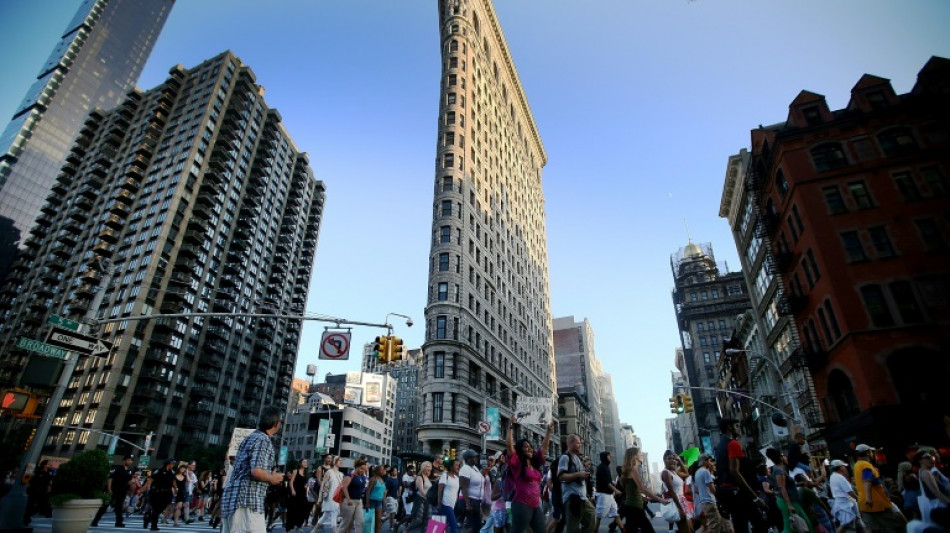
| RBGPF | 2.74% | 76 | $ | |
| RYCEF | 2.5% | 14.42 | $ | |
| CMSC | 0.16% | 23.787 | $ | |
| VOD | -0.13% | 11.905 | $ | |
| RIO | 0.07% | 62.734 | $ | |
| NGG | -0.19% | 71.275 | $ | |
| RELX | -0.39% | 48.265 | $ | |
| SCS | -0.43% | 16.43 | $ | |
| CMSD | -0.29% | 23.88 | $ | |
| JRI | -0.25% | 13.406 | $ | |
| AZN | -0.33% | 80.7 | $ | |
| BTI | -0.38% | 58.29 | $ | |
| BCC | -1.09% | 90.24 | $ | |
| BCE | -0.75% | 25.3 | $ | |
| GSK | -0.73% | 39.9 | $ | |
| BP | -0.25% | 34.655 | $ |

New York's landmark 'Flatiron' sold -- hopefully for real this time
New York's iconic Flatiron Building was auctioned off Tuesday for $161 million to a group of investors led by real estate developer Jeffrey Gural, after the previous bidding's winner failed to complete the transaction, organizers said.
The sale of the world-famous skyscraper took place outdoors in lower Manhattan with seven bidders registered and about a hundred people present, Mannion Auctions told AFP.
The property -- on a wedge-shaped lot at the intersections of Fifth Avenue, Broadway and 22nd Street -- went to Gural, 80, one of its five current owners, who was the second highest bidder during the highly contested previous auction.
On March 22, little-known bidder Jacob Garlick, founder of the Abraham Trust equity venture fund, obtained rights to the Flatiron with a pricey offer of $190 million but missed a deadline to pony up 10 percent of the money to lock in purchase.
The 121-year-old property -- one of the first skyscrapers in Manhattan, designed by renowned Chicago architect Daniel Burnham -- has been empty since its last tenant left in 2019. Its five owners could not agree on what to do with the building, and a judge ordered its auction.
After Garlick pulled out of the deal, the building could have automatically gone to Gural, who had offered $189.5 million in March, but he opted for a new auction to be held.
The 22-story triangular edifice completed in 1902 was revolutionary for its time, built on a steel skeleton and clad in limestone and terra cotta with touches of both beaux arts and Renaissance revival architecture.
I.Sperl--SbgTB



